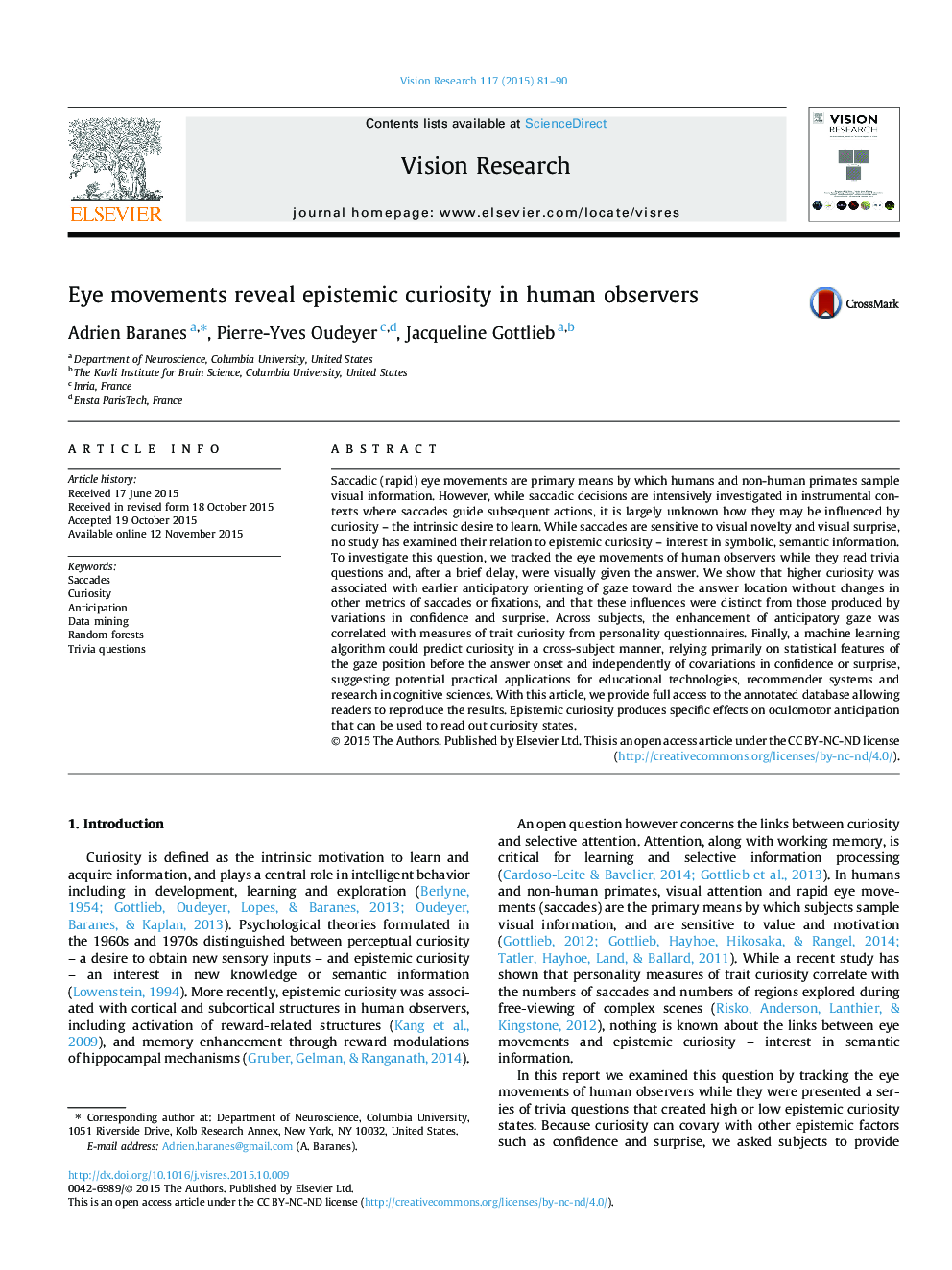| کد مقاله | کد نشریه | سال انتشار | مقاله انگلیسی | نسخه تمام متن |
|---|---|---|---|---|
| 6203079 | 1603182 | 2015 | 10 صفحه PDF | دانلود رایگان |
- Curiosity elicited by trivia questions affects eye movements in human observers.
- The effects are primarily on the anticipatory component of gaze.
- The effects correlate with individual measures of trait curiosity.
- Machine learning algorithms can use eye movements to read out curiosity states.
Saccadic (rapid) eye movements are primary means by which humans and non-human primates sample visual information. However, while saccadic decisions are intensively investigated in instrumental contexts where saccades guide subsequent actions, it is largely unknown how they may be influenced by curiosity - the intrinsic desire to learn. While saccades are sensitive to visual novelty and visual surprise, no study has examined their relation to epistemic curiosity - interest in symbolic, semantic information. To investigate this question, we tracked the eye movements of human observers while they read trivia questions and, after a brief delay, were visually given the answer. We show that higher curiosity was associated with earlier anticipatory orienting of gaze toward the answer location without changes in other metrics of saccades or fixations, and that these influences were distinct from those produced by variations in confidence and surprise. Across subjects, the enhancement of anticipatory gaze was correlated with measures of trait curiosity from personality questionnaires. Finally, a machine learning algorithm could predict curiosity in a cross-subject manner, relying primarily on statistical features of the gaze position before the answer onset and independently of covariations in confidence or surprise, suggesting potential practical applications for educational technologies, recommender systems and research in cognitive sciences. With this article, we provide full access to the annotated database allowing readers to reproduce the results. Epistemic curiosity produces specific effects on oculomotor anticipation that can be used to read out curiosity states.
Journal: Vision Research - Volume 117, December 2015, Pages 81-90
